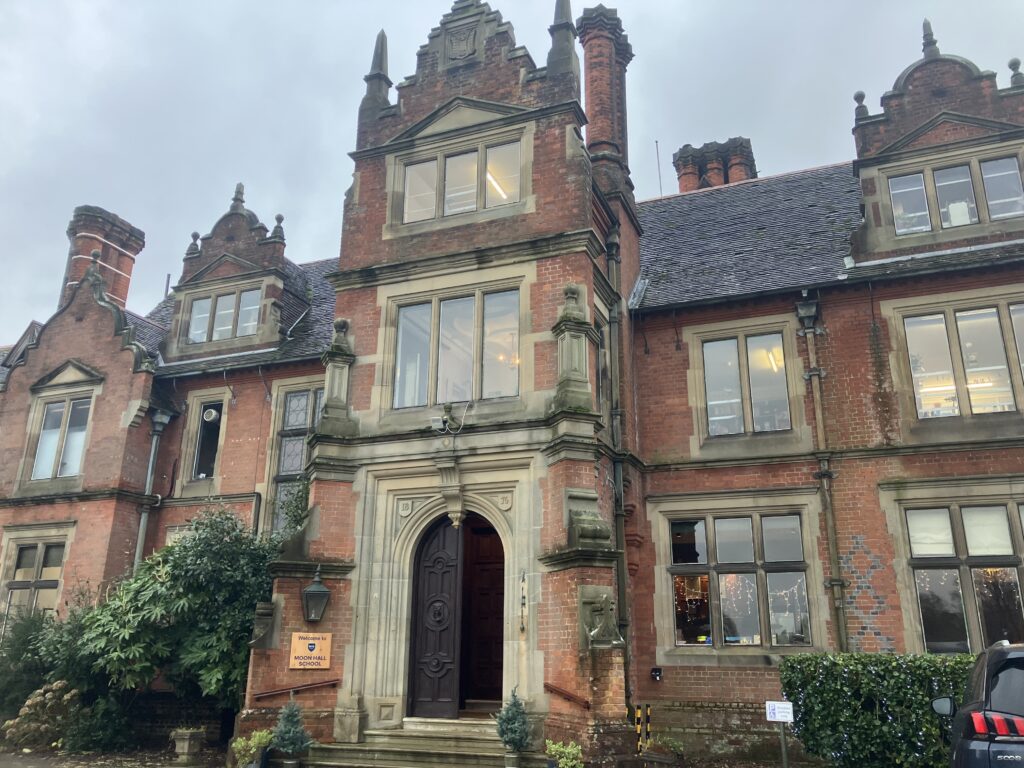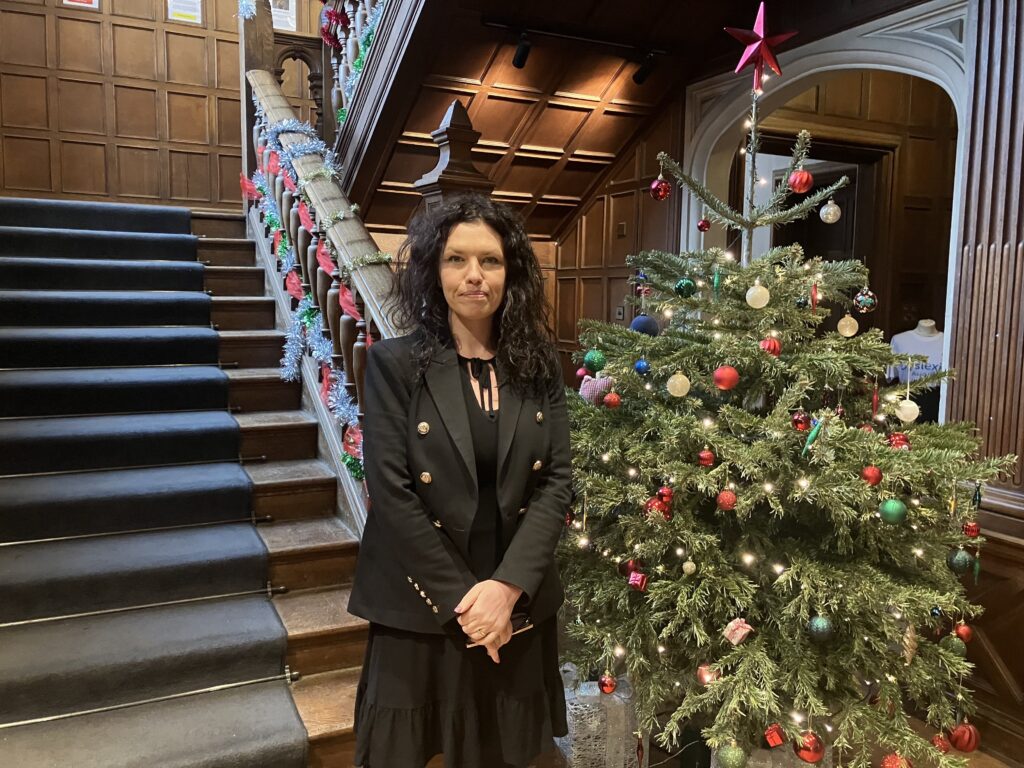 Abraham Lincoln
If given the truth, the people can be depended upon to meet any national crisis...
Abraham Lincoln
If given the truth, the people can be depended upon to meet any national crisis...
 Guildford news...
for Guildford people, brought to you by Guildford reporters - Guildford's own news service
Guildford news...
for Guildford people, brought to you by Guildford reporters - Guildford's own news service
School Head Says There Should Be VAT Exemptions for SEN Kids
Published on: 2 Jan, 2025
Updated on: 6 Jan, 2025
By Emily Dalton
local democracy reporter
Private schools are “not a lifestyle choice but a necessity” for children with special educational needs (SEN), argues the headteacher of an independent school in Reigate.
Tuition fees are expected to soar from January 1 as the government is scrapping the tax exemption on private schools across the country. The tax is expected to bring £1.7 billion a year, according to the Treasury.
But Mrs Michelle Catterson, head of Moon Hall School, a Specialist Dyslexia school, said: “If you can afford to pay, you should. But there should be exemptions for SEN kids.”
Around 200 children between the ages of seven and 16 attend Moon Hall School – all of whom have been diagnosed primarily with dyslexia, a learning condition that can cause difficulty with reading, writing and spelling. Moon Hall provides a student-to-staff ratio of about 12:1 so pupils get extra support and adapt to meet their learning needs.
Mrs Catterson explained her students with SEN, 70 per cent of whom have an Education and Health Care Plan (EHCP), often cannot have their needs met locally in state schools, so there is “no viable alternative” for education. The Local Authority, like Surrey County Council, will pay for specialist provision in these instances.
“We offer local authorities good value for money,” Mrs Catterson claimed, with most of the school’s GCSE results boasting higher than average.
The head teacher said she believed 100 per cent of the children [at the school] have SEN but because of long and complicated process of applying for an EHCP, many parents often give up on the process. Instead, around 30 per cent of students pay for the specialist education.
Fees used to start at £7,505 per term for a child in year 7, according to the school’s prospectus. But now, parents could be set back £10,424. The Department for Education has said it does not expect school fees to increase by 20 per cent as schools do not pass VAT onto parents. But as tuition fees is Moon Hall’s only source of income, Mrs Catterson argued that they have no choice. “Small, specialist settings like [Moon Hall] simply cannot absorb the additional costs imposed by VAT,” she said.
Most Children with EHCPs have their needs met within the state sectors, according to government officials. If an EHCP assessment concludes a child can only be supported in a private school, the local authority funds that child’s place and can reclaim the VAT they pay.
Despite the expensive tuition fees, the headteacher claimed Moon Hall is not an affluent school and the government will find “no swimming pools” on the grounds. As a charity, any extra income is put back into the school by spending on staff to help the students, according to Mrs Catterson.
Impact on the parents
“It’s really short-sighted,” said Mrs Catterson. The head claimed that adding VAT to SEN private school fees will mean more parents will apply for an EHCP, causing further backlog and creating extra costs to the government, which will need to provide for those needs.
Alternatively, some parents take on two jobs to fund their children through private school. Mrs Catterson stressed it would be an “awful situation” if a “settled, happy child, making good progress” was moved to the state sector where their needs cannot be supported.
Chris Coghlan, MP for Dorking and Horley, said: “Moon Hall provides an outstanding education for children with special educational needs in Surrey. Adding VAT to school fees will place an unbearable strain on families who already make significant sacrifices to afford them. The Government must exempt specialist schools like Moon Hall from VAT to ensure children with special needs can continue to access the support and education they deserve.”
“Punish independent schools”
Built in 1863, Moon Hall is a grade II-listed building which was purchased by the founders of the dyslexic school and repurposed as an educational building some forty years ago. Although a grand historical building, repairs and maintenance costs to the site are almost constant – Mrs Catterson said the roof needs replacing which is expected to cost £1.6 million, even before pricey specialist chimney repairs.
Not only is the school facing the VAT hike, Moon Hall will have to wrestle with changes in national insurance and minimum wage increases like many other charities. The head said she “still doesn’t know what the true figure will do” to the school and where it can find the extra money. Mrs Catterson said: “It feels like the Labour government is trying to punish independent schools.”
“Rebuilding confidence”
A government spokesperson said: “Ending tax breaks on private schools will help raise additional funds to break down barriers to opportunity and support the 94 per cent of pupils who attend state schools to achieve and thrive including those with SEND.
“Pupils with the most acute needs will not be impacted by this policy. Work has already begun to rebuild families’ confidence in and reform the broken SEND system we inherited. The budget invested £1 billion extra in day-to-day provision and earlier this month £740 million was directed to support local authorities in creating more specialist places in mainstream schools.”
The spokesperson added: “We are committed to improving inclusivity and expertise in mainstream schools, and ensuring special schools cater to those with the most complex needs, restoring parents’ trust that their child will get the support they need.”
















Howard Moss
January 3, 2025 at 8:39 am
I agree that children with special educational needs should be VAT exempt, this article informs us that 70% of the pupils here have an EHCP – which means they are VAT exempt and therefore the local authority is paying the fees (i.e. the tax payer).
Many private schools that claim this VAT on their “business” is unfair appear to be in very good financial health with annual surpluses and cash reserves that many businesses long for.